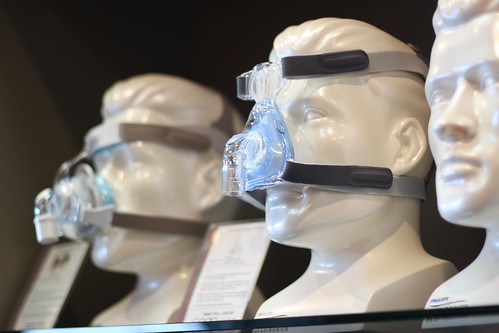Have you just learned you have sleep apnea? If so, then don't be afraid. If left untreated, sleep apnea can cause many serious health problems. If treated, though, you can live a relatively normal life with just few inconveniences. That said, it is important that you understand best practices for treating sleep apnea, which will be outlined in the following paragraphs. If your sleep apnea is the result of having narrow breathing passages, a mouth guard can help you out. These guards look similar to what athletes use, but are specifically made to change the position of the tongue, jaw and palate while you sleep and keep your airway open. If this sounds like a solution worth pursuing, discuss the matter with your doctor and schedule a fitting for a guard of your own. You can fight sleep apnea by giving up certain vices. As with many other health problems, alcohol and tobacco will worsen sleep apnea. Drinking can overly relax your respiratory system and may cause breathing problems. Cigarettes can hurt your lungs, possibly even causing lung cancer. Letting these habits go can reduce your symptoms and make sleeping easier. Quitting smoking and drinking can relieve sleep apnea symptoms. These habits can cause your throat muscles to relax or swell, increasing sleep apnea. Unlike having expensive surgery or other medical procedures, eliminating these harmful habits actually saves money for you.
Home »
» Tips And Tricks On How To Get Rid Of Sleep Apnea
Tips And Tricks On How To Get Rid Of Sleep Apnea
Posted by Unknown
Posted on 2:49 AM
with No comments
Tips And Tricks On How To Get Rid Of Sleep Apnea
Have you just learned you have sleep apnea? If so, then don't be afraid. If left untreated, sleep apnea can cause many serious health problems. If treated, though, you can live a relatively normal life with just few inconveniences. That said, it is important that you understand best practices for treating sleep apnea, which will be outlined in the following paragraphs. If your sleep apnea is the result of having narrow breathing passages, a mouth guard can help you out. These guards look similar to what athletes use, but are specifically made to change the position of the tongue, jaw and palate while you sleep and keep your airway open. If this sounds like a solution worth pursuing, discuss the matter with your doctor and schedule a fitting for a guard of your own. You can fight sleep apnea by giving up certain vices. As with many other health problems, alcohol and tobacco will worsen sleep apnea. Drinking can overly relax your respiratory system and may cause breathing problems. Cigarettes can hurt your lungs, possibly even causing lung cancer. Letting these habits go can reduce your symptoms and make sleeping easier. Quitting smoking and drinking can relieve sleep apnea symptoms. These habits can cause your throat muscles to relax or swell, increasing sleep apnea. Unlike having expensive surgery or other medical procedures, eliminating these harmful habits actually saves money for you.
Have you just learned you have sleep apnea? If so, then don't be afraid. If left untreated, sleep apnea can cause many serious health problems. If treated, though, you can live a relatively normal life with just few inconveniences. That said, it is important that you understand best practices for treating sleep apnea, which will be outlined in the following paragraphs. If your sleep apnea is the result of having narrow breathing passages, a mouth guard can help you out. These guards look similar to what athletes use, but are specifically made to change the position of the tongue, jaw and palate while you sleep and keep your airway open. If this sounds like a solution worth pursuing, discuss the matter with your doctor and schedule a fitting for a guard of your own. You can fight sleep apnea by giving up certain vices. As with many other health problems, alcohol and tobacco will worsen sleep apnea. Drinking can overly relax your respiratory system and may cause breathing problems. Cigarettes can hurt your lungs, possibly even causing lung cancer. Letting these habits go can reduce your symptoms and make sleeping easier. Quitting smoking and drinking can relieve sleep apnea symptoms. These habits can cause your throat muscles to relax or swell, increasing sleep apnea. Unlike having expensive surgery or other medical procedures, eliminating these harmful habits actually saves money for you.


0 comments:
Post a Comment